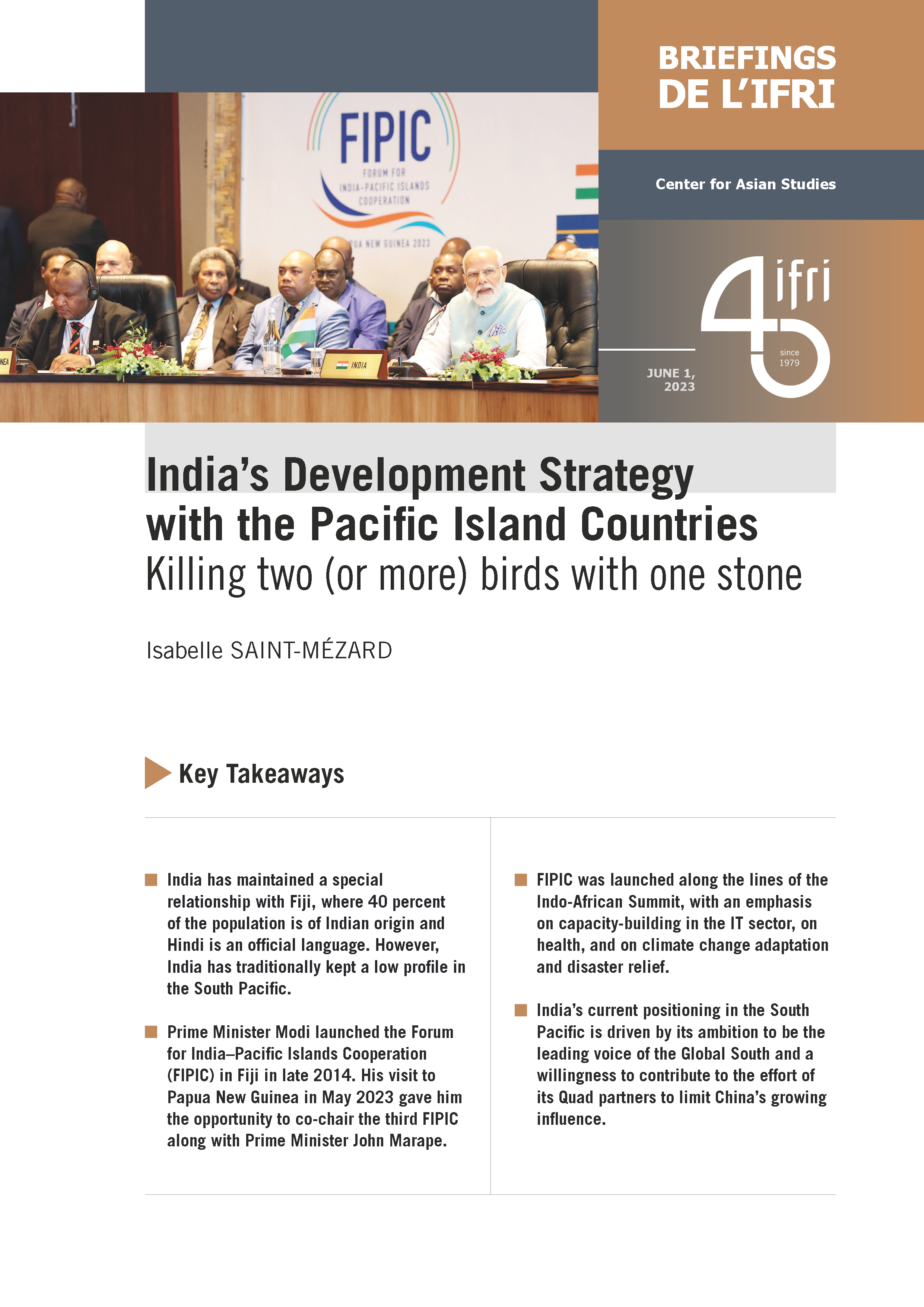India’s Development Strategy with the Pacific Island Countries. Killing Two (or More) Birds with One Stone

Prime Minister Narendra Modi’s maiden visit to Papua New Guinea (PNG) on May 20-21, 2023, is a testament to India’s international positioning and search for a global role. In Port Moresby, Modi co-chaired the third Forum for India-Pacific Islands Cooperation (FIPIC) and announced a series of steps to enhance development cooperation with its partners of the South Pacific. India’s outreach to the Pacific Island countries (PICs) was clearly in line with its G20 presidency and its campaign to be the leading voice of the Global South.
At the same time, Modi reaffirmed India’s commitment to a free, open, and inclusive Indo-Pacific, opted to contribute alongside the U.S., Japan and Australia to an important telecommunications project in Palau and, more generally, has looked to enhance partnerships with PICs as part of the Quad. Modi’s visit to PNG thus reflected India’s two-pronged strategy of, on the one hand, working with the U.S. and its allies in the Indo-Pacific and, on the other, mobilizing as many countries as possible under the banner of the Global South.
India is no stranger to the South Pacific. It has interacted with the Pacific Island countries in the Commonwealth, the Non-Aligned Movement, and the United Nations system. It has also been a dialogue partner of the Pacific Islands Forum (PIF) since 2006 and has maintained a special relationship with Fiji, where 40 percent of the population is of Indian origin and Hindi is an official language. Nevertheless, India has generally kept a low profile in the South Pacific, as reflected by its rather limited diplomatic presence. While familiar with the socioeconomic and environmental challenges faced by small island developing states, India has prioritized the neighboring island countries of the Indian Ocean in its foreign and assistance policies.

Available in:
Regions and themes
ISBN / ISSN
Share
Download the full analysis
This page contains only a summary of our work. If you would like to have access to all the information from our research on the subject, you can download the full version in PDF format.
India’s Development Strategy with the Pacific Island Countries. Killing Two (or More) Birds with One Stone
Related centers and programs
Discover our other research centers and programsFind out more
Discover all our analyses
RAMSES 2024. A World to Be Remade
For its 42nd edition, RAMSES 2024 identifies three major challenges for 2024.
France and the Philippines should anchor their maritime partnership
With shared interests in promoting international law and sustainable development, France and the Philippines should strengthen their maritime cooperation in the Indo-Pacific. Through bilateral agreements, expanded joint exercises and the exchange of best practices, both nations can enhance maritime domain awareness, counter security threats and develop blue economy initiatives. This deeper collaboration would reinforce stability and environmental stewardship across the region.

The China-led AIIB, a geopolitical tool?
The establishment of the Asian Infrastructure Investment Bank (AIIB) in 2016, on a Chinese initiative, constituted an attempt to bridge the gap in infrastructure financing in Asia. However, it was also perceived in the West as a potential vehicle for China’s geostrategic agendas, fueling the suspicion that the institution might compete rather than align with existing multilateral development banks (MDBs) and impose its own standards.
Jammu and Kashmir in the Aftermath of August 2019
The abrogation of Article 370, which granted special status to the state of Jammu and Kashmir (J&K), has been on the agenda of the Bharatiya Janata Party (BJP) for many decades.







